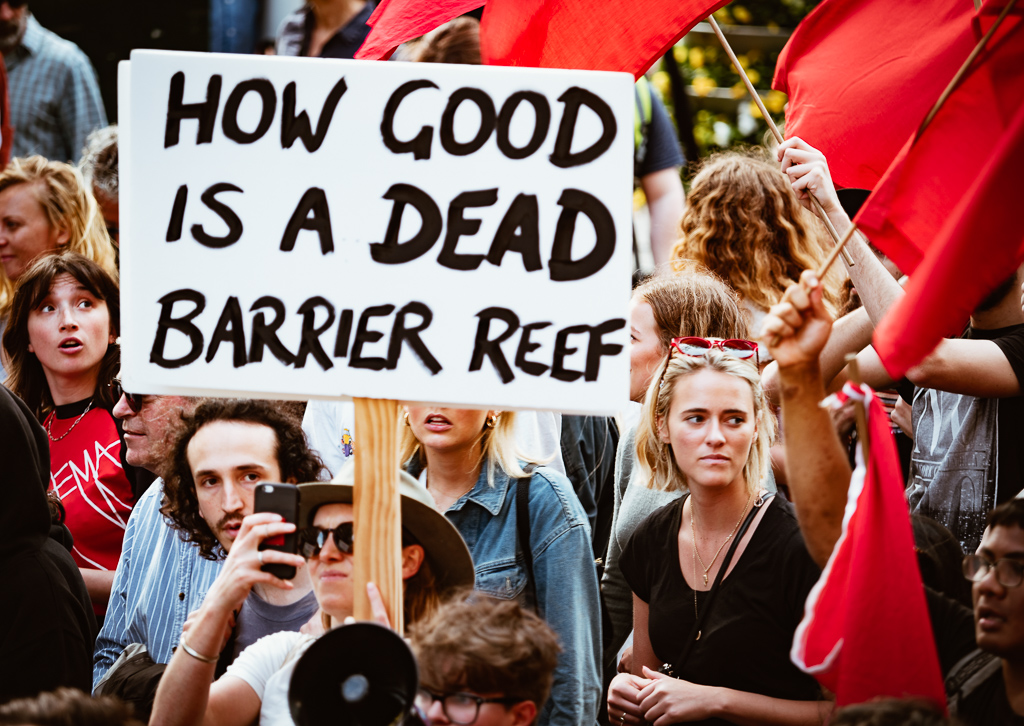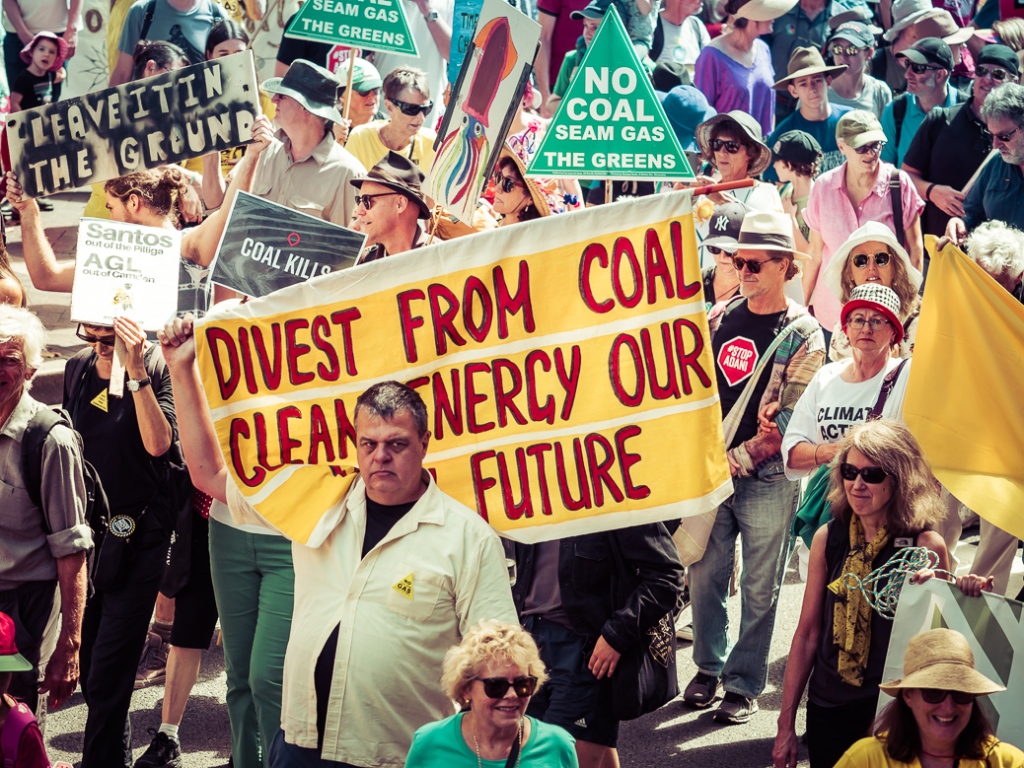Elke Schuessler from Leuphana University, Lüneburg has recently published this review of our book Organising Responses to Climate Change: The Politics of Mitigation, Adaptation in the journal Organization Studies. It contains some interesting reflections on our analysis and the implications for future management and organization research and is reproduced in full below.
Continue reading Book Review: The Politics of Climate ChangeAll posts by christopherwrightau
Book Review of “Organising Responses to Climate Change”
Hans Baer from the University of Melbourne has just published a review essay covering eight of the most recent books examining climate change and capitalism. The essay includes a review of our most recent book Organising Responses to Climate Change. The following is an extract from that review essay which can be found in full in the latest issue of the Journal of Australian Political Economy.
Continue reading Book Review of “Organising Responses to Climate Change”Organising responses to climate change: 2022 in review
2022 has been a particularly busy year in terms of my climate change research and teaching. With my co-researchers we’ve written and published a significant number of new journal articles exploring different aspects of the climate crisis, including:
- the political economy of climate adaptation on the Great Barrier Reef
- the role of celebrities in climate change disputes
- the maintenance of fossil fuel hegemony in Australian energy politics
- the growing criminalization of climate activism; and
- the neglect of climate change in business and management research
AI has just made the university essay redundant!
So here’s a blog post a little different to my usual climate change doom-saying! This week, several colleagues at different universities drew my attention to the growing online discussion about the upgrade of an open-access AI chat application GPT-3 that can now handle complex instructions and produce coherent long-form responses.
Continue reading AI has just made the university essay redundant!Coral Not Coal! The Roles of Celebrities in Climate Change Contestation
Celebrities are increasingly important actors in social disputes, with their high public profiles used to amplify political campaigns and businesses using celebrity endorsements to promote their brands and justify their actions. Celebrities are particularly prominent in climate politics in endorsing green issues, educating citizens about pressing environmental concerns, as well as potentially defending implicated industries from critique.
Continue reading Coral Not Coal! The Roles of Celebrities in Climate Change ContestationFrom Denial to delay
In this current era of increasing climate activism, a key question that emerges is how the fossil fuel sector continues to avoid social and political sanction given the threat its activities pose to the future of human civilization? In a recently published paper in the journal Energy Research & Social Science, we investigated how the Australian fossil fuel sector has sought to maintain its political dominance in the face of growing social critique. Drawing on an analysis of media coverage and industry press releases during the period 2008-2019, we identified the core discourses underlying the Australian fossil fuel sector’s response to growing public concern over climate change and how these discourses stabilize the hegemonic project and defuse central themes of critique.
The following is a summary of the full article which can be viewed here.
Continue reading From Denial to delayThe political economy of the Climate Crisis in the Pacific
During 2018 I travelled to Wellington in New Zealand to participate in the second Pacific Climate Change Conference hosted by Victoria University and located in the amazing Te Papa Tongarewa Museum. It was a fascinating inter-disciplinary conference featuring international climate scientists such as Professor Michael Mann from Pennsylvania State University, as well as a diversity of social scientists, community representatives and activists from across the Pacific.

Best Critical Paper Winner: “Making Climate Change Fit for Capitalism: The Corporate Translation of Climate Adaptation”
A paper that Daniel Nyberg and I have authored on the corporate translation of climate change has won the best critical paper award at the prestigious Academy of Management conference in Boston, USA.
Our paper focuses on how a growing political response to calls for dramatic decarbonization has been to downplay the role of emissions mitigation and emphasize local forms of climate change adaptation. We explore this issue through the example of corporate responses to the catastrophic coral bleaching of the Great Barrier Reef during 2016/2017 and the process of corporate political activity which encouraged a shift in public debate from climate mitigation to adaptation.
In particular, we identify how corporations create a hegemonic ‘common sense’ view of politically contested issues and how interests are politicized and enacted in public debate. Through these actions, corporate solutions and self-regulation become accepted as the logical response to the climate crisis. Despite the worsening impact of climate change, these corporate responses ensure the maintenance of business as usual.
The research for this paper was generously funded by the Sydney Environment Institute and the University of Sydney Business School.
You can view or download a copy of the paper here.

A Climate of Denial: Coral Bleaching, Political Obfuscation, and the Climate Crisis
“It was catastrophic, gut wrenching and incredibly disturbing. That was one of the most comprehensive hard coral cover sites on the Reef and all of the coral in the shallows was fully bleached. That’s when we knew that we’d lost that site.”
Our guide’s words cut through the sea breeze blustering over the stern of our dive boat. Our tour group of about thirty, were sitting in our wetsuits, warming ourselves after another dive on Opal Reef off Port Douglas, listening to Paul describe his reaction to that first coral bleaching event and trying to make sense of what we had just experienced: “In 2016, the world lost a lot of its living coral and the Great Barrier Reef was no exception. What’s causing it is global warming induced rises in water temperature.” That day we had seen stunning congregations of staghorn and branch coral, delicate sponges, vivid blue giant clams, large boulder corals metres across, and myriad fish coloured in reds and blues and greens darting in and out of our way. But we had also seen large swathes of dead coral on the top of the reef, their skeletal remains just discernible behind a shroud of algae.
Continue reading A Climate of Denial: Coral Bleaching, Political Obfuscation, and the Climate Crisis
Visualizing the Climate Crisis
Recently I started exploring the possibility of combining my decade-long research focus on the climate crisis with my passion for photography. This idea began to develop after several years of photographing climate protest rallies and environment related events at the University of Sydney. However, the idea of a dedicated photography project documenting Australia’s fossil fuel addiction and the physical, social and political consequences of climate change really started to gel as I stood on banks of the Hunter River in Newcastle a few months back watching another huge bulk carrier entering the world’s largest coal port to take on another load of climate destroying fossil fuel.
Organizing in the Anthropocene
Human civilization has now irrevocably altered basic Earth systems. Two centuries of industrialisation and economic globalization based upon the rapacious exploitation of fossil fuels, and the destruction of forests, lands, oceans and cultures has disrupted the Earth’s atmosphere and ice caps and devastated the biosphere. This has occurred at such a scale and pace that Earth scientists argue we are leaving the Holocene geological epoch and entering the more volatile ‘Anthropocene’.
Why Business Won’t Save Us From Climate Change
Climate change is now the ever-present reality of human experience. In recent times we have witnessed a procession of huge hurricanes batter the US and Caribbean, record-breaking monsoons flooding Asia, and in Australia, despite the death of up to half of the Great Barrier Reef in back-to-back coral bleaching events, political support for new mega-coal mines and coal-fired power stations. While there is now clear scientific agreement that the world is on track for global temperature increases of as much as 4 degrees Celsius by century’s end (threatening the very viability of human civilization), our political and economic masters continue to double down on the fossil fuel bet, transforming perhaps the greatest threat to life on this planet into ‘business as usual’.
Continue reading Why Business Won’t Save Us From Climate Change
Changing the World? Academic Impact, Activism and the Neoliberal University
Recently Carl Rhodes, Alison Pullen and I published an article in the journal Organization exploring the reframing of academic impact in the neoliberal university.
In the article we explore how ‘impact’ has become the buzzword of the contemporary university, and the value of academic research is increasingly judged by government, administrators and industry in terms of its contribution to economic growth and productivity. For example, the Australian Research Council (ARC)’s Research Impact Principles and Framework (2015) states that:
‘the Australian Government recognises the importance of research, science and innovation for increasing productivity and wellbeing to achieve long term economic growth for the Australian community’.
Continue reading Changing the World? Academic Impact, Activism and the Neoliberal University
Approaching the precipice? A review of Climate Change, Capitalism and Corporations
Professor Carl Rhodes of the University of Technology Sydney recently published an excellent review of our book Climate Change, Capitalism and Corporations: processes of Creative Self-Destruction in the journal Organization in July 2017. You can read the full review below.
The cover of Christopher Wright and Daniel Nyberg’s Climate Change, Capitalism, and Corporations features the artwork Insatiable by Theodore Bolha and Christopher Davis. The image is dirty, brooding and apocalyptic. At its centre is a naked man, bent over and screaming. An industrial landscape weighs heavy on his back as black smoke pumps into the murky sky. As if about to fall to his knees and crawl, he follows a small group of wild animals all heading to a precipice, seemingly unaware of their impending doom. The image is suggestive of humankind’s bleak destiny wrought at the hands of its own creation yet seemingly beyond its own control. It is an ominous and pessimistic portrayal of the effects of an insatiable industrial machine. Continue reading Approaching the precipice? A review of Climate Change, Capitalism and Corporations
Environmental Politics Review of Climate Change, Capitalism and Corporations
Nathan Lemphers, Department of Political Science, University of Toronto
‘Business as usual’ is no longer an option. In this book, Christopher Wright and Daniel Nyberg probe the roots of the climate crisis and reveal the intractable relationship that capitalism has with the degradation of the environment. Publishing one year after Naomi Klein’s This Changes Everything, Wright and Nyberg echo the sobering refrain that the problem with climate change is not emissions but capitalism. Continue reading Environmental Politics Review of Climate Change, Capitalism and Corporations

















